Hello everyone! Thea here, wishing you a Happy Sunday from grossly gloomy New York City. Let’s get down to business, shall we?
Giveaway Winners:
We have a few winners to announce! The winner of our giveaway of Belle Epoque by Elizabeth Ross is…
Hebe Stanton
The winner of our giveaway of The Thousand Names by Django Wexler is…
Alexandra the Great
Congratulations to the winners! You know the drill. Send us an email with your snail mail address, and we’ll get your winnings out to you as soon as possible.
On Discussion/Interaction with Authors & Bloggers:
Last week, Ana wrote a ponderings post about her thoughts regarding the Peter Grant Series by Ben Aaronovitch. The author came by and left a comment that focused mostly on the “romance” or the perceived romantic storyline between two main characters in the series, and asked us to reconsider that idea of a romantic relationship between said characters. Ana was taken aback by the comment because her post did not focus at all on the romantic aspects of the series – even if she had, it would still be her prerogative to interpret the books despite the author’s declared intention.
Much heated discussion ensued in the comments and on twitter.
Just to be completely upfront and clear: it is not the fact that the author commented that was the problem. It was a mixture of the tone of the comment and the fact that he tried to direct a certain reading of his series (never mind that the comment had no relevance to Ana’s post and actual reading of the series). We Smugglers are all for author interaction. We love working with authors, and are friendly with many authors on the blog, on twitter, and in real life. Similarly, we love and encourage discussion, especially on our reviews and ponderings posts.
That said, it is a very complicated scenario when an author comments on a review or essay about their books and tries to directly debunk or address criticism in said review or essay. Especially when the author starts talking about authorial intent (which must be “right”) versus reader interpretation (which is obviously “wrong”).
We are NOT saying that authors can’t or shouldn’t respond to criticism, but that it is usually a bad idea to do so in the critic’s space. In our experience, this rarely goes over well.
And now we open the floor to you – what do you think about author-reviewer interaction and responses to criticism or reviews?
This Week on The Book Smugglers:
Now that we have gotten that off our chests, time to focus on this week! Today, we have a special treat for Ilona Andrews fans – we’re giving away a copy of we are giving away copies of Magic Rises (the newest Kate Daniels book, out July 30) and a special edition of the first book in the series, Magic Bites.
On Monday, Ana takes over with a review of science fiction-ish novel Terra by Mitch Benn.
Tuesday, we have a guest post from Christine Brodien-Jones, author of new middle grade novel The Glass Puzzle.
Then, it’s Thea’s turn on Old School Wednesday, with a review of Japanese fantasy novel Moribito II: Guardian of the Darkness by Nahoko Uehashi.
On Thursday, we change things up a bit! We are bringing back The Dare (in which each Smuggler dares the other to read a book outside of their respective comfort zones). But it’s not just any Dare – this time, we are daring each other to read and review nonfiction. THAT’S RIGHT, FOLKS! Nonfiction. Ana takes on Gossip from the Forest by Sara Maitland (about the intertwined relationship between fairy tales and actual forests); meanwhile Thea takes on Brain on Fire by Susannah Cahalan (a memoir/medical thriller about a young journalist recounting the months of illness and diagnosis of a rare autoimmune disorder). Wish us luck!
On Friday, we close out the week with a joint review of highly recommended science fiction novel Up Against It by M.J. Locke.
PHEW. It’s going to be a busy week! Until later, we remain…
~ Your Friendly Neighborhood Book Smugglers


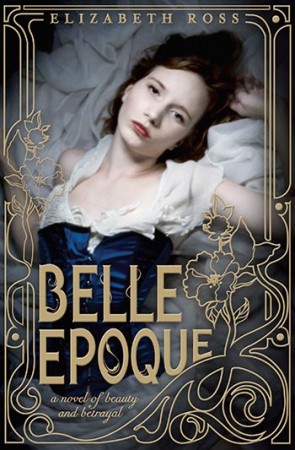
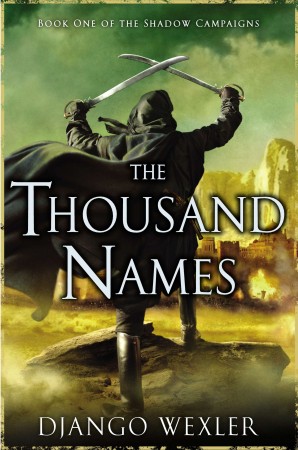
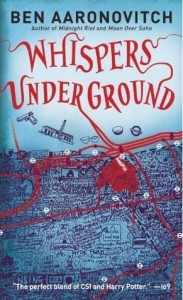
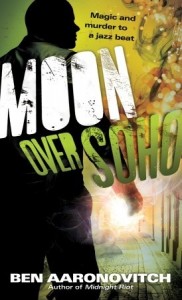

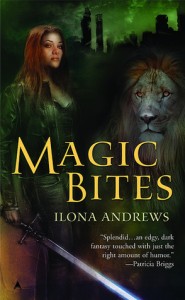
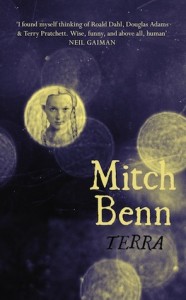
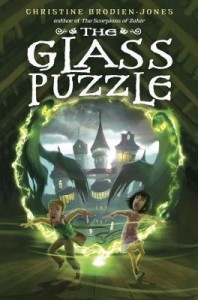

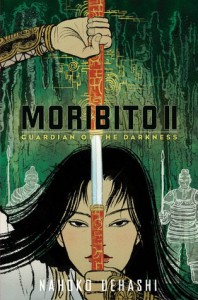
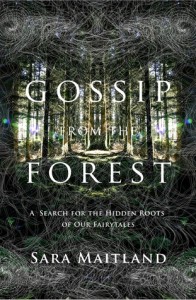
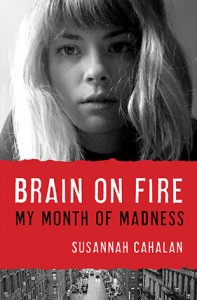
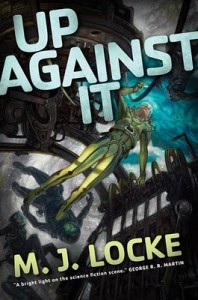











17 Comments
Ana @ things mean a lot
July 14, 2013 at 1:29 pm“We are NOT saying that authors can’t or shouldn’t respond to criticism, but that it is usually a bad idea to do so in the critic’s space. In our experience, this rarely goes over well.”
Yep, exactly – perfectly put. I think it’s disingenuous to pretend that an author can join a discussion of their own work in the comments as if they were just another reader – there’s a power differential inherent to their involvement that will almost always lead to trouble. I don’t believe that authorial intent is particularly relevant to literary interpretation, but because not everyone is of this opinion, the author’s comment still has the force of perceived authority behind it. Whatever they say will be read as the ultimate truth about the book by some, and the critic’s take as wrong by extension. It doesn’t matter how they mean it – they’ll come across as authoritative, and it’s important to take this into consideration.
This isn’t to say that authors can’t ever address interpretations of their book that go against what they believed they were doing (Bennett Madison did so recently, and quite well), but it’s usually a good idea to do so in their own space – their blogs, an interview, the neutral territory of a guest post somewhere else, you name it. And the way they frame it is important too – you can say “this is what I set out to do, but of course my intent has limitations”, you can correct factual errors, but being very hands-on with readers’ interpretations is generally a pretty poor choice.
Ashleigh Paige
July 14, 2013 at 1:45 pmIt looks like this is going to be a fun week! I’ve got to see how the nonfiction dare turns out. I’m not one to read a lot of nonfiction, but the two books you’ve got picked out sounds great.
Re authors-reviewer interaction about criticism: I think nine times out of ten, it’s a bad idea for an author to approach a reviewer and respond to the reviewer’s criticism. Aaronovitch’s choice of words, tone, and how he responded yet didn’t respond to Ana’s points makes me feel he falls into that 9-out-of-10. In just the past few months, I’ve had three bad experiences of my own with authors concerning criticism.
The first time, I was ranting about a book on Twitter and the author tweeted me saying he was only human. His wife followed me shortly after, I blocked them both due to my discomfort, and when I posted the review on Amazon, I got an email from the wife calling my review spiteful, among other things. It may not have been their intent, but their chosen methods of responding to my criticism came off as attempts to silence me.
The second one also occurred on Twitter. One of my updates/tweets (my GR updates are synced to Twitter) expressed annoyance at the slow pace of the book. The author called me “honey” (which I DESPISE unless a know the person well; the author was a total stranger to me) and asked why I was still reading her book if I didn’t like it.
The third was split between Goodreads and Twitter. My friend commented on a status update while I read a self-pubbed author’s book and expressed her issues with the author’s business plan and opinions on what makes her book legit. The author saw it, started ranting on Twitter, and implicitly agreed with someone who said something must be wrong with my friend’s brain (among other things). When I posted my negative review, she commented on it to thank me for reading her book. Not terrible, but rather odd considering my friends and I were discussing how she was reacting to my friend’s comments.
Thanks to bad experiences like these, I prefer authors leave me be when I’m criticizing their book/an element of it. I allowed one occurrence of good author-reviewer interaction over criticism out of ten because it’s completely possible for the two to meet and argue without anything condescending, rude, etc. being said, but I haven’t been lucky enough to have that happen to me yet.
Dina
July 14, 2013 at 2:10 pmI generally agree that it’s a bad idea for an author to comment on reviews. If they say “thank you” for a good review, that’s fine. But starting a discussion in the comments usually ends badly.
In this particular case, I didn’t feel that Ben Aaronovich had any kind of “tone”. I read the comment as if he were saying, hey you can look at this relationship in a different way. If he intended something that clearly doesn’t come across to his readers, he should take that feedback and incorporate it into his next novel.
But I didn’t think he wanted you to change the way you read or interpret the book. If he had, I’d understand your outrage. But that’s the other thing about written comments – we don’t see the person, we can’t judge their tone of voice, their facial expressions… this obviously leads to different interpretations of Ben’s comment (just as there are different interpretations of the characters in his books). Maybe I am missing something in his choice of words (English isn’t my first language) but on first reading the comment in question, I thought it was harmless.
Would it have been better for him to not say anything? Sure! Did he do anything wrong, behave badly, or actually tell you how to read his books? Not the way I understood it.
Janicu
July 14, 2013 at 2:49 pmI was paying attention to the comments in Ana’s post and to some of what was said on twitter. My opinion is that you can’t comment on a review (or discussion, anything with a reader’s OPINION) for your book without there being a question of bias. If you are an author, I’m going to find it very hard to believe that you DON’T have an emotional and financial attachment to your published work. Anything you say is going to be colored by this. I also think that readers are going to have opinions about stories and they may not be what the writer intended. Opinions are opinions, they can’t be “right” or “wrong”.
Even as a reader I have run into reviews that I have completely disagreed with because I interpreted things differently. But if I comment with a differing opinion, it’s not the same thing as an author commenting on a review to disagree.
If an author wants to talk about what they intended, I don’t think this is really BAD, but they have to be *really* careful when they’re doing this in a reader’s space because it can feel like a silencing tactic (there can be an implicit: you reviewed this “wrong” and have made the author unhappy, and a sense that if you — or another blogger were to review things “wrong” again, they can enjoy a visit from this author in the future. I’ve seen so many cases where an author with thousands of followers have bashed a review on social media and said followers went to tell off the reviewer, and that is something that I think about as a book blogger all the time. It’s not something I want but I feel like it could always happen). To be honest I’m not sure how I would have reacted in Ana’s place, but I was pretty disturbed by the people telling her she “over-reacted” or that the author wasn’t that rude (hmm, let’s all tell someone how to interpret a comment on her blog and how much she should react.. hmm). And then how suddenly the argument is “Oh so authors shouldn’t comment at all? There should be a sign!”. That’s changing the issue from one of a reviewer objecting to a comment that she feels is an author trying to change her mind about how she interpreted a text, into an issue of whether an author can comment at all. It feels like it is twisting the situation in order to make the reviewer seem really unreasonable because it’s not being clear about what she’s really objecting to.
DebC
July 14, 2013 at 3:17 pmAs both a reader and a writer, I feel very strongly that authors should never comment on reviews of their work. Not everyone agrees with this and I know it can be really tempting, but not only is it often silencing, but it changes the conversation. Once the author has said something, no matter how it well it’s said or how it’s received, my observation is that the conversation never goes back to the books (I don’t even like to thank reviewers, which is a gray area–I mean, I WANT to, and I understand why others do, especially really great reviews that feel like they got everything I wanted to say, but it still feels, to me, like skewing the conversation, which should be about the books, not the author).
Unless someone asks me a direct question or it’s writers talking about writing, I won’t comment on my own books in someone else’s space and I hope I won’t ever comment publicly about a review even in my own space (though I’m human and sometimes I’m stupid). I love reviews, I love this blog, but I try to have my reader hat (or my friend-of-other-writers hat) pretty firmly on my head when I’m reading here and other review sites.
I know there are others who feel like–well, you’re putting your reviews out in public, anyone can comment. Which is true. Anyone can comment. It doesn’t mean it’s a good idea.
Rachel
July 14, 2013 at 4:03 pmThe above comment discussion is interesting, but myself I just want to express how super jealous I am that you get to read Magic Rises soon! I can not wait for your review. Your reviews of Kate and of Rachel’s (the Hollows) adventures make me as happy as the books itself!
BTW, not sure if you watched it already, but Balsa rocks in the Moribito anime 🙂
Andrea K
July 14, 2013 at 8:49 pmI have a fairly straightforward policy on commenting on reviews: I only do so if the reviewer has given me a “shout out” in the review – ie. addressed a question or remark which seems to be specifically asking for me, author-thing, to weigh in with a response.
I think I’ve had, say, two out of a thousand reviews actually address me in this manner. For one of them, my response turned into “And All the Stars”, so I consider it a fairly positive interaction.
I do feel bad about NOT responding to reviews at times – particularly on positive reviews. The urge to thank people is very high and there’s nothing an author (well, this author) loves more than talking about my books all the time. But I feel that even thanking reviewers for positive responses can be a little like stepping into someone else’s conversation – and thus changing their dialogue with my books, making the reviewer self-conscious and likely to modify their language simply out of awareness that I’m watching.
“You’re reading it wrong” and all those variations of the urge to correct the reviewer’s response are totally and thoroughly suppressed. I do this mainly by reminding myself of all the books people love which I hate, and all the books I love which people seem indifferent to. There is no correct response to a book. There is simply your response.
cat_hellisen
July 15, 2013 at 5:23 amI don’t comment on my reviews in general because ew – invasion of space – but I’m also human and sometimes I end up breaking my self-imposed rule. Having said that, I don’t EVER comment on negative reviews (unless I have and I don’t remember because I was under the control of a brain-eating parasite at the time) and usually when I do comment it’s to clarify something that was asked, or in the case with Wendy Darling it was a discussion about books that have a niche audience appeal.
So, now that I have my own failings out the way 😉 I think in general it’s bad form to go comment on reviews of your own work (especially negative reviews) because oh lordy so much can go so wrong so quickly. The other thing I’m (now) aware of is that some people will take it upon themselves to “defend” you. I don’t think this has ever happened to me, but I’ve seen it with other authors, where hordes of commenters descend onto the comment section and proceed to crap all over the reviewer’s space, telling them how brilliant the book is and that the review JUST DOESN’T UNDERSTAND THE WRITER’S GENIUS MMKAY.
I totally get wanting to defend the thing you love, but it looks so trashy when people do that in the reviewer’s space. Rather than go troll someone else’s review – why not go write your own review/rebuttal on your own blog/tumblr/whatever? As a writer I love the *idea* that people want to defend my work, but I am far more comfortable with them doing that in their own space or in a public forum designed to discuss the work in question.
Matthew
July 15, 2013 at 9:12 amAuthors writing in and being cranky on someone else’s review seems like a bad idea for sure, though I guess if Aaronovitch had made the comments to me, I wouldn’t have taken those particular ones badly. The test would have have been in how he responded to my response — because while his analysis of his characters was interesting, I didn’t draw the same conclusions about them from reading his books. As for the META… I think it’s reasonable for me, as a reader to draw conclusions about characters while I’m reading without having to take a break to psychoanalyze the maybes of their pasts. 😉 I’d much rather he’d responded about the catastrophes that find his female companions (though, really, all that can be said there is that he ought to be careful there — otherwise he’s on his way to the Travis McGee or middle Richard Jury novels where there girl always dies).
Krisellyn
July 15, 2013 at 10:11 amThis is in reference to authorial intent. English majors are taught that there is only one interpretation of a piece of literature. I believe the author in question was tripping over this old chestnut.
Rachel Neumeier
July 15, 2013 at 11:01 am“We are NOT saying that authors can’t or shouldn’t respond to criticism, but that it is usually a bad idea to do so in the critic’s space. In our experience, this rarely goes over well.”
I agree that this puts the issue plainly, except I’d go further and say that, a lot of the time, the author should think twice about responding to criticism in any public space. I think that can look, oh, control-freakish and thin-skinned and just weird.
I haven’t always resisted the (very strong) urge to express my appreciation of a glowing review, but I do wonder if even that is unwise. It’s as Andrea K says, that’s an interaction that could seem out of place and make the reviewer self-conscious. On the other hand, my impulse is to say, “Hey, glad you loved X, may I send you a copy of my new title, Y?” Hopefully that is a win-win for both the reviewer and for me.
I definitely think it’s just a terrible idea for an author to comment on a negative review, or on anything negative in a generally positive review. It doesn’t matter what your intent is or how carefully you phrase things or how many little smiley emoticons you include, it just isn’t likely to go over well. And there’s no point anyway, since the reader’s perception of the book is what it is.
Actually, a negative review is a lot like a publisher’s rejection: when an editor says, “Not right for me”, you don’t argue. You just move on.
Justin
July 15, 2013 at 12:20 pmI dunno. I mean, I welcome it. Say what you want authors, I shall argue with you. We will do battle. I’m right, you’re wrong. THERE CAN BE ONLY ONE.
I recognize not everyone has this mentality, so generally speaking an author should probably look before they leap.
Kate Elliott
July 15, 2013 at 3:59 pmI argue with critics of my books all the time . . . IN MY HEAD.
Once or twice I have written a long impassioned rant about why a particular review was so unbelievably stupid and wrong and sent it . . . to my daughter, who reads it and says “that’s nice, Mom, very well said. Now don’t send it.” And I don’t.
To my mind, review space is for readers not for authors.
Like Rachel N above I’m a little mixed on whether it is even appropriate for me to say “thank you” but I sometimes do anyway. Reviewers (like Justin) who don’t mind or even welcome author comments can make that clear if they wish, and I think that is fine, too; everyone has a different dynamic.
There’s another aspect to this. Sometimes I wonder if authors worry that a mixed or negative statement in a review will somehow “poison the well” and cause everyone reading that review to immediately change their minds to the detriment of the book/author. If so, then it explains why sometimes authors feel the need to say something. (just a theory; I may be entirely wrong)
Anyway, that’s not my experience at all of readers (or of myself as a reader). For example, I really loved Moon Over Soho and had a different reaction to it than Ana did. Her comments didn’t change my mind or cause my love for the books to waver, but I was intrigued to read a very different take on the same material (I would have commented but I was traveling at the time). One of the things that makes art so amazing is how many diverse reactions people have to any given piece. I actually find that illuminating and something to be celebrated.
Kate Elliott
July 15, 2013 at 4:07 pmI should confess that I have once argued with a review (although on my own blog, as a separate post) and it turned out to be a trainwreck for me NATURALLY. I do think that because authors are imperfect humans beings like everyone else and so they will sometimes succumb to being tired or anxious or stressed about other things.
I wish I could link to my all time favorite post by an author about responding to reviews because it involved fabulous illustrations as well as interpretive dance, but I can’t recall her name (uf writer).
Kate Elliott
July 15, 2013 at 4:11 pmFOUND IT!
Carolyn Crane:
Matthew
July 16, 2013 at 7:31 pmThe more thoughts percolate in my brain (seems like it keeps cogitating on things in the back of my brain after I think I’ve finished thinking about them) it seems to me that even if an author isn’t meaning to be rude or disrespectful — and even if they aren’t those things at all, if they contradict you on your own blog, they are basically invading your space. It would be akin to someone barging into a lecture hall and telling people the professor isn’t teaching correctly. They can use their own space to discuss things or ask if they can do a guest post or something, but anything else is likely to be rude.
Speaking of reviews, though, and because Kate Elliott commented me and made me think of this — thank you for your review of her Spiritwalker Trilogy. It got me to read “Cold Magic” and I absolutely loved it. I don’t know why I’ve not read any of Elliott’s work before!
Online Book Seller
July 23, 2013 at 8:29 pmI really enjoyed the information you provided here. This kept me on my toes and Elliott’s work. Thanks again